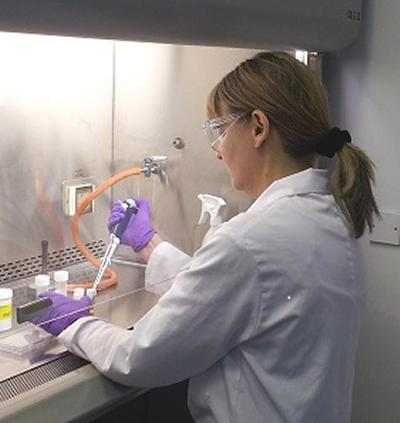The ATAFUTI trial: Treating urinary tract infections - is there an alternative to increasingly resistant antibiotics?

Resistance to antibiotics is a particular problem with cystitis (urinary tract infection). Cystitis in adult women is one of the most common conditions treated with antibiotics in primary care and although the symptoms are distressing, they usually settle without complications within a few days.

Professors Michael Moore and Gareth Griffiths, research team leader and trials leader of the project respectively, are members of the University's Network for Anti-Microbial Resistance and Infection Prevention (NAMRIP); and share NAMRIP's aim to combine world class research with an interdisciplinary approach in combatting the increasing resistance that microbes display to countermeasures like antibiotics. This project is aligned with that goal and aims to bring antimicrobial resistance under control and attack the problem by reducing antibiotic use by providing effective symptom relief for women with cystitis.
Traditional use of bearberries
Uva ursi has a traditional use dating back to the middle ages for many conditions including cystitis, urethritis and dysuria. It was first mentioned in the Welsh “Physicians of Nyddfai” in the 13th century. However the value of Uva ursi treatment in humans remains unproven, despite long-term use in folk medicine. The ATAFUTI clinical trial was developed to find out if either Uva ursi or a readily available anti-inflammatory drug can be used during a period of delayed antibiotic prescription to provide symptom relief. If so they would have the potential to change the way treatment is given and be used as an alternative to antibiotic prescribing.
How the trial will work
Over 300 women presenting to their GP with suspected cystitis will be asked to accept a ‘wait and see’ prescription for antibiotics and then randomly selected to take one or both of the two medications to reduce symptoms. Participants will be asked to take the trial medication and, if possible, not to take the antibiotics for 3 or up to 5 days. However, if their symptoms at any time get worse or have not improved after 3-5 days they will be advised to take the antibiotics. The study will record symptoms using a diary and the proportion of women using antibiotics in each group will be assessed.
NIHR funded
The research is funded by the National Institute for Health Research School for Primary Care Research (NIHR SPCR). The School comprises the leading academic centres for primary care research in England and their focus is on research to improve everyday practice in primary care. Professor Michael Moore is leading the study. The trial, run by the NIHR-funded Southampton Clinical Trials Unit (SCTU), located within Southampton General Hospital and University of Southampton’s Faculty of Medicine, involves 60 GP practices in the Southampton, Bristol and Oxford areas.
We are really excited to be getting started with this study which hopes to identify ways of relieving symptoms of urinary infection without the need to resort to antibiotics
Notes for editors
Useful links:
Southampton Clinical Trials Unit - www.southampton.ac.uk/ctu
NIHR Research School for Primary Care Research -www.spcr.nihr.ac.uk
Department of Health UK 5 Year Antimicrobial Resistance Strategy 2013 to 2018 www.gov.uk/government/publications/uk-5-year-antimicrobial-resistance-strategy-2013-to-2018
For further information or to arrange an interview, please contact:
Professor Michael Moore, Professor in Primary Health Care Research
Primary Care and Population Sciences academic unit, Faculty of Medicine, University of Southampton
Tel: (023) 8024 1056
E-mail: mvm198@soton.ac.uk